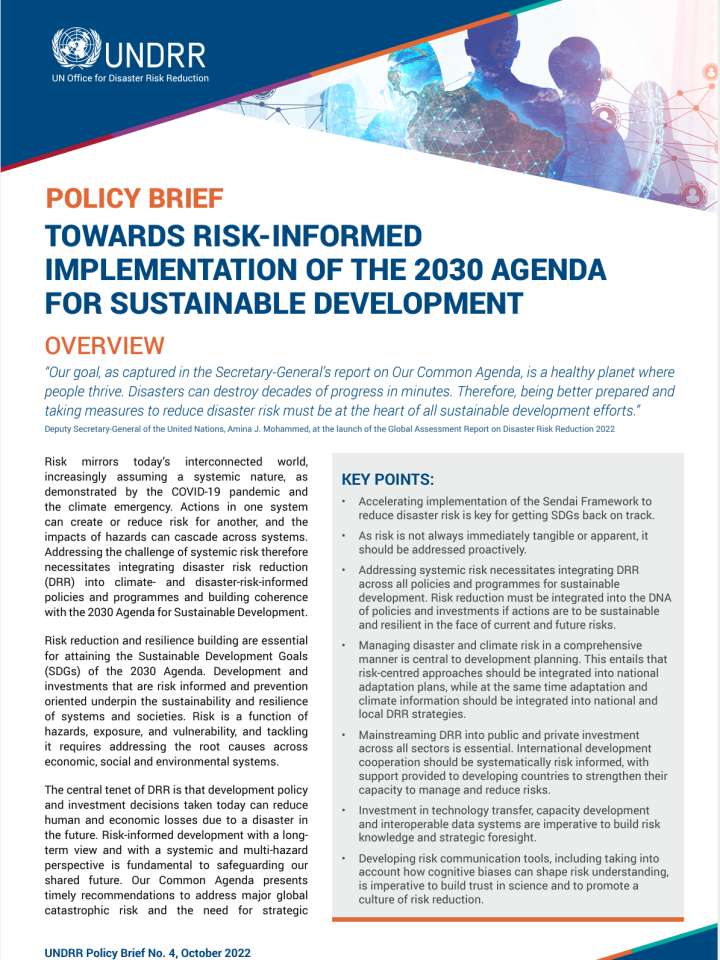Policy brief: Towards risk-informed implementation of the 2030 Agenda for Sustainable Development
This policy brief explores challenges faced in the integration of risk considerations in the 2030 Agenda for Sustainable Development. Risk mirrors today’s interconnected world, increasingly assuming a systemic nature, as demonstrated by the COVID-19 pandemic and the climate emergency. Actions in one system can create or reduce risk for another, and the impacts of hazards can cascade across systems. Addressing the challenge of systemic risk therefore necessitates integrating disaster risk reduction (DRR) into climate- and disaster-risk-informed policies and programmes and building coherence with the 2030 Agenda for Sustainable Development.
Some of the key points of the policy brief are:
- Accelerating implementation of the Sendai Framework to reduce disaster risk is key for getting SDGs back on track.
- Addressing systemic risk necessitates integrating DRR across all policies and programmes for sustainable development. Risk reduction must be integrated into the DNA of policies and investments if actions are to be sustainable and resilient in the face of current and future risks.
- Managing disaster and climate risk in a comprehensive manner is central to development planning. This entails that risk-centred approaches should be integrated into national adaptation plans, while at the same time adaptation and climate information should be integrated into national and local DRR strategies.
- Mainstreaming DRR into public and private investment across all sectors is essential. International development cooperation should be systematically risk informed, with support provided to developing countries to strengthen their capacity to manage and reduce risks.
- Developing risk communication tools, including taking into account how cognitive biases can shape risk understanding, is imperative to build trust in science and to promote a culture of risk reduction.
